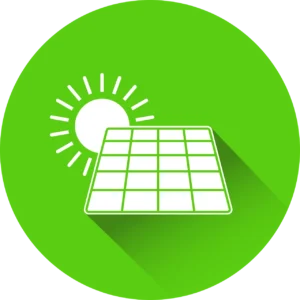SOLAR PV GUIDE
Contact Buildings and Trust NowSOLAR PANELS – EVERYTHING YOU NEED TO KNOW ABOUT SOLAR PANELS, THE GRANTS AVAILABLE, COSTS, AND QUOTES!
This comprehensive guide to clean solar energy and solar panels will help you understand all the detail and benefits of solar energy investment in green technology.
IMPORTANCE OF SOLAR PANELS
Solar panels and reduction in energy bills
Solar panels or photovoltaic panels (PV) help to reduce energy consumption, save on energy bills, and help to gain a greener climate!
Most importantly, energy prices are now at alarming highs. Consequently, compared with last year, your energy bills will have tripled.
UK Government intervention and energy prices
Without the UK Government’s intervention and solar panel grants, energy prices would be even higher! The UK Government has stepped in to cap energy prices at £2,500. As a result, more of the UK population wants free solar energy to power their homes all year round.
 Benefits of solar panel technology
Benefits of solar panel technology
Solar panel technology provides renewable energy. Solar panels or photovoltaic panels (PV) are a fantastic benefit to electric vehicle drivers who want to charge their vehicles completely free!
Furthermore, solar panels help us reduce our carbon footprint and prevent further climate change. In addition, solar panels help to reduce fossil fuel consumption needed to heat our homes.
Solar panel investment
In addition, solar panels are great investments, which can help you save on soaring energy bills and add value to your property. Moreover, you can sell any extra electricity your solar panels produce on the national grid!
SOLAR PV GUIDE
Contact Buildings and Trust NowGOVERNMENT GRANTS FOR SOLAR PV?
Solar Panels and the government ECO4 Grant Scheme
The UK Government offers financial incentives for energy-efficient solutions under the Energy Company Obligation Scheme (ECO). The ECO schemes aim to reduce carbon emissions. At the same time, tackle the worrying rise in fuel poverty among many households.
Fuel poverty is when a household spends more than 10% of its annual income on fuel to heat the home. When you think of the recent hikes in energy prices, it is not difficult to see there will be an increase in the number of homes falling into fuel poverty!
ECO4 is the fourth phase of the ECO grant scheme. ECO4 supersedes ECO3. In ECO3, companies could only fulfill 25% of their energy efficiency obligations. In contrast, under ECO4, companies can now fill a whopping 50% of their obligation duties!
LOCAL AUTHORITY FLEXIBLE ELIGIBILITY (LA FLEX)
Under the latest ECO4 scheme, the UK Government has relaxed its rules governing which homeowners can be eligible for the grants. Local councils can now determine their criteria in line with LA FLEX or Local Authority Flexible Eligibility. Councils can now set their own eligibility criteria on the significant factors in their local authority.
Local councils now have the opportunity to widen the criteria of energy-efficient measures to more people. More homeowners and tenants can now apply for solar power funding. However, the Government initiative is not yet open to social housing tenants.
LA FLEX allows councils to:
- Target the coldest homes,
- Target the state of health of the occupants
- Put in place the necessary solar panel grants to help warm the homes.
The Government solar panel grants target households with a low income of less than £30,000. In addition, the solar panel grants aim to help those families who are vulnerable or who struggle with chronic illness:
- Households with children under six years old
- People with mental health issues
- Those over the age of sixty-five years
- Pregnant mothers
- Disabled
- Heat disease
- Breathing problems
SOLAR PV GUIDE
Contact Buildings and Trust NowSOLAR PV GUIDE
Contact Buildings and Trust NowGOVERNMENT GRANTS FOR SOLAR PV?
Who else can be eligible for solar panel funding?
Under the new ECO4 eligibility criteria, the following qualify for solar panel grant funding
- Child Benefit
- Child Tax Credit
- Housing Benefit
- Income-based Jobseekers allowance
- Income-related Employment & Support Allowance
- Income Support
- Pension Credit
- Universal Credit
- Working Tax Credit
Child Benefit Eligibility
There are several conditions to the eligibility criteria if you receive child benefits.
Child benefit income threshold for a single parent:
- A single claimant with one child or qualifying young person: £19,900
- A single claimant with two children or qualifying young persons: £24,800
- A single claimant with three children or qualifying young persons: £29,600
- A single claimant with four or more children or qualifying young persons: £34,500
Child benefit income threshold for a couple with children:
- Couple claimant with one child or qualifying young person: £27,500
- Couple claimant with two children or qualifying young persons: £32,300
- Couple claimant with three children or qualifying young persons: £37,200
- Couple claimant with four or more children or qualifying young persons: £42,000
Under the old ECO3 scheme, the following did qualify for funding, but they are now no longer on the eligibility criteria list:
- Armed Forces Independence Payment
- Attendance Allowance
- Carer Allowance
- Constant Attendance Allowance
- Disability Living Allowance
- Industrial Injuries Disablement Benefit
- Personal Independence Payment
- Severe Disablement Allowance
- War Pensions Mobility Supplement
However, this does not mean there are no other Government initiatives and grants available if you fall into this category:
- Local Authority Delivery Scheme or (LAD)
- HHCRO – Home Heating Cost Reduction Obligation
- First Time Central Heating or (FTCH)
- Park Home Grant Scheme
SOLAR PV GUIDE
Contact Buildings and Trust NowWHAT BUILDINGS AND TRUST AND SOLAR PANELS GUIDE WILL DO FOR YOU
Firstly, solar panels help to contribute to a cleaner environment!
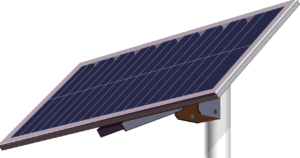

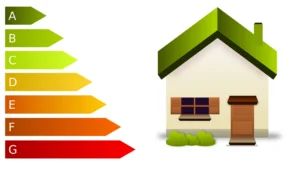
SOLAR PV GUIDE
Contact Buildings and Trust NowCOST OF SOLAR PV?
Solar Panels Guide
In the early days, the cost of solar panels was expensive. Nowadays, UK Government initiatives, such as slashing VAT on energy-efficient heating systems and equipment, mean seen solar panels have tumbled in price. Furthermore, advances in PV technology have also contributed to solar panel prices falling.
Solar panel prices
Most importantly, there can be enormous differences in solar panel prices.
- There are many solar panel manufacturers:
- Expensive and premium solar panels have better energy-efficiency
- Basic solar panel models will be less energy-efficient.
The price of solar panels and their installation will vary depending on different factors:
- Location – The cost of solar panels in London is generally more expensive than in other parts of the UK
- Type of solar panel – The three most common types of solar panel are:
- Monocrystalline
- Polycrystalline
- Thin film
Each of the three types of solar panels varies in price with monocrystalline, the most energy efficient, the most expensive.
Solar panel size:
- 3kW
- 4kW
- 5kW
- 6kW
Ease or difficulty of installation – If your roof is easily accessed, and the scaffolders can erect the scaffolding without difficulty, solar panel installation is cheaper than a busy high street house. In the latter case, a scaffolding permit must be had and can take time and add pounds to the price.
Furthermore, since there are many technical options for solar panels, most installers will quote a different price. Therefore, get a few quotes to match your budget.
It is best to do as much research as you can so that you have a good understanding of the various quotes you receive.
Solar Panels Guide
Solar panel estimation prices:
- 3kW = £5500
- 4kW = £7000
- 5kW = £8500
- 6kW = £10,000
If you wish to have a battery storage system, the cost could rise by up to £5000.
Does the cost of solar panels include labour charges?
Nearly always, the cost of labour is in the price. A typical solar panel installer can charge up to £500 per day.
Is the price of scaffolding included in the price?
Nearly always, your quote for solar panels will include the price of the scaffolding.
Are solar panels worth the price?
In the early days, energy providers would pay very reasonable rates for the electricity your solar panels generated.
Rates, nowadays, have come down quite markedly, and you will not get rates anywhere as near as you did in the past.
How many solar panels will my home need?
Generally speaking, the higher the kW, the more 250W solar panels you will need to generate the required electricity.
A 250W solar panel is 1.6m2. Therefore:
- 3kW = 22m2 = 12 250W solar panels
- 4kW = 29m2 = 16 250W solar panels
- 5kW = 32m2 = 20 250W solar panels
- 6kW = 43m2 = 24 250W solar panels
SOLAR PV GUIDE
Contact Buildings and Trust NowSOLAR PV AND ELECTRICITY AND PERFORMANCE
Solar Panels Guide
It is necessary to have a basic understanding of watts (W), kilowatts (kW), and kilowatts hour (kWh).
Firstly, watt (single watt) and kilowatt (1000 watts) are both a unit of power in the International System of Units.
- Power is the measure or the amount of power converted/transferred per unit of time.
- Units of electricity are in kWh.
Electrical devices need various watts to operate.
- If an appliance of 1kW runs for one hour, then the amount of electricity consumed would be 1kWh.
- If a 10kW electrical item runs for one hour, the electricity consumed would be 10kWh.
Solar panels are not dissimilar to household electrical appliances and have different levels of power performance and electrical generation. A typical solar panel will have around 22% efficiency.
Let us take a 1kW solar panel and calculate the average power generated in the hourly, daily, and annually:
- Hourly = 0.096kW
- Daily = 2.33kW (The true number is 2.328767123, but we have rounded up) annually= 850kW
In conclusion, allowing for some poor sunshine days, you would expect to generate around 850kW annually from a 1kW array of solar panels.
SOLAR PV GUIDE
Contact Buildings and Trust Now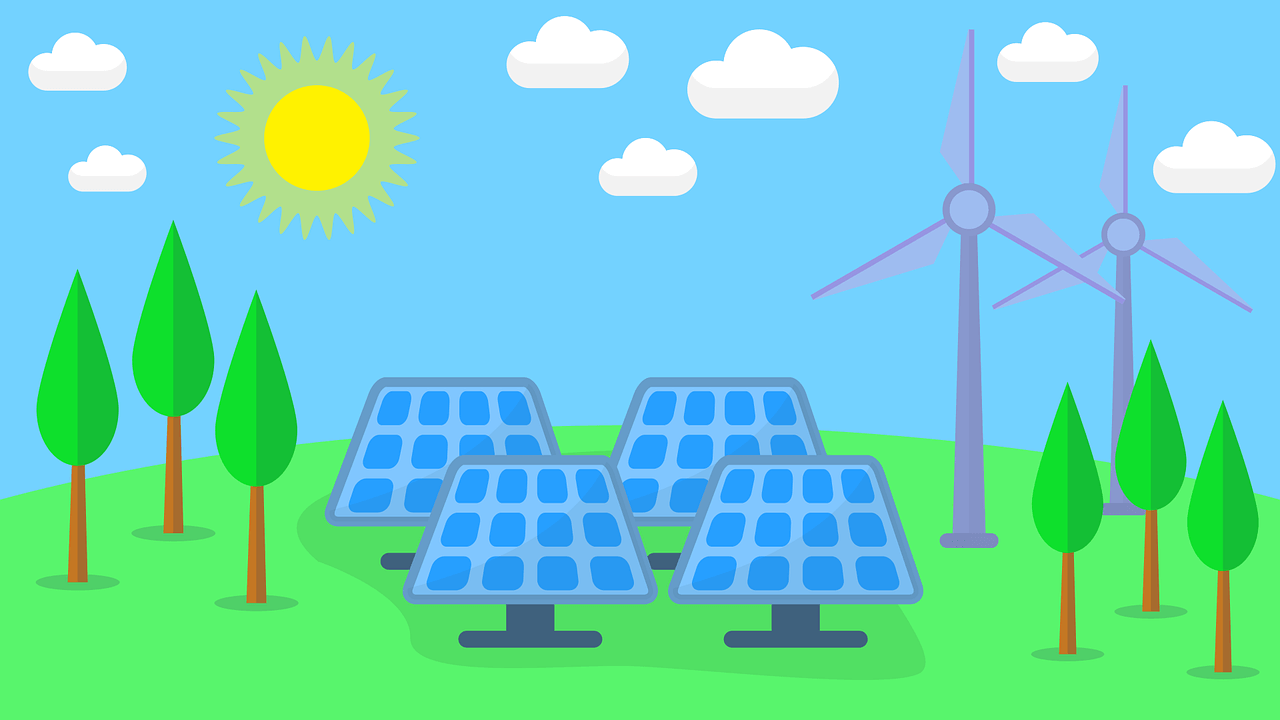
SOLAR PANELS AND ELECTRICITY AND PERFORMANCE
A typical house in the UK will generally need between 1kW and 4kW solar panels.
You can do similar calculations for solar panels with 2kW, 3kW, and 4kW. The easy method is to multiply the annual electricity output of the 1kW solar panel by either 2kW, 3kW, or 4kW.
- 1kW = 850kW
- 2kW = 1700kW
- 3kW = 2550kW
- 4kW = 3400kW
- 5kW = 4250kW
- 6kW = 5100kW
Solar Panels Guide
UK homes and electrical consumption
Typically, UK homes range from:
- Mid-terrace
- Flat
- End terrace
- Semi-detached
- Bungalow
- Detached
Of course, there are more types, but these are the commonest.
Flats and mid-terrace properties generally consume nearly 3000kW annually.
By contrast, the bungalow and detached properties will consume a proportion of electricity in the region of 4000kW annually.
When you compare the size of a property against the amount of annual electricity it needs, you will see a 3kW solar panel would only be suitable for the warm mid-terrace, and a large detached house would need the 5kW solar panels.
Solar panel electrical capacity
Capacity is how much electrical output solar panels can generate when the sun is shining best.
Solar panel electrical capacity calculation
Take a typical solar panel of 1m2.
Now multiply the size by 1,000 = 1 x 1,000 = 1,000.
Multiply the number by how energy efficient the solar panel is:
We shall use 20% efficiency or 0.2 as a decimal = 1,000 x 0.2 = 200
Now take the hours the sun shines on a typical day in your area. We shall say 4 hours = 200 x 4 = 800.
Now divide by 1,000 to get the number of kWh = 800/1000 = 0.8kW per day.
Take calculate the number of kW per month, and multiply the number of kW daily by 30:
- 0.8kW x 30 = 24kW per month
To calculate the number of kW annually, multiply the number of kW daily by 365:
- 0.8kW x 365 = 292kW
The figure does not seem like many kW, but this is only for one panel, and your house will consist of many.
How solar panels will I need to produce enough electricity for the house?
As earlier stated, different houses will need different levels of solar panel performance.
Can I get solar panels that look different than the traditional panels?
Yes, you can get black solar panels, where you cannot see the light solar cells. These may possess more aesthetics, but they are more expensive.
SOLAR PV GUIDE
Contact Buildings and Trust NowSOLAR PANEL BATTERY SYSTEMS
Solar Panels Guide
Solar panels and battery systems
A battery is an excellent addition to solar panels. The battery allows you to store excess electricity generated by the solar panels. The excess electricity is there for a later time, such as when it is night-time and dark.
You can choose from a range of solar panel batteries. Chiefly, the solar panel batteries at the premium end of the market will outperform models at the cheaper end.
The inverter feeds the solar panel batteries until the solar panel batteries reach maximum capacity. Once this stage happens, the batteries revert to hibernating mode.
Often it is better not to export the generated electricity because the financial return can be less! You can feed the electricity into the national grid at 5p, but you can buy it during the night at 30p!
The batteries charge in direct current or DC. The positive and negative wires are colour coded:
- Positive = orange
- Negative = black
The more solar panel batteries you have, the more solar panel electricity you can store, but there is an extra cost.
Solar panel batteries are not cheap. You can expect to pay around £5000 for a decent solar panel battery.
How many volts will feed into the solar panel battery?
The amount of solar panel voltage depends upon various factors, such as daylight and the distance between solar panels and the inverter. Generally, on a sunny day, there should be a voltage feed of around 290v.
 Can I add more solar panel battery cells anytime I want?
Can I add more solar panel battery cells anytime I want?
Yes, adding a solar-panel-battery, or adding more solar panel cells can be done at any time.
How are the solar panel batteries mounted?
The solar panel batteries are wall mounted wherever space allows. If you do not have a mounting fixture, one of our electrical installers will deliver a positive solution.
Will the batteries have loose wiring hanging everywhere?
No. Our electrical installers will use a series of very tidy trunking and cable ties to ensure a neat installation. The trunking is not only aesthetic, but the durable property of the trunkings helps to maintain the cable safely. Furthermore, the trunking prevents children from tampering with the electrical equipment.
What happens to the solar panel battery system if there is a power cut?
The solar panel battery system will have an (EPS) or emergency power supply. There is a double socket, which gives electricity to an extension throughout the power cut! All your lights will still be on!
How safe are the solar panel batteries?
Solar panel batteries are very safe. They come with isolator switches to cut off the generated electricity in an emergency.
SOLAR PV GUIDE
Contact Buildings and Trust NowSOLAR PANEL INSTALLATION
Solar panels are a fantastic investment in your property. However, the installation must be professional. You must understand several points with solar PV system installations on the rooftop.
Most importantly, before any solar PV system installation, you must consider some important key factors:
- Does your roof have enough space and sufficient open space, without a chimney of boiler flue impediments, to allow for solar panel installation?
- What orientation does your building have, and which direction does your roof face?
It is advisable to check with your energy supplier to find out what your annual energy consumption is. Once you have this figure, it will be easier to match suitable panels for your roof.
For further information, visit the European Commission site for Photovoltaic Geographical Information System. The system allows you to see how much sunlight annually and each hour is in your area.
Types of solar panels
Solar panels come in many different sizes:
- big commercial solar panels
- smaller domestic solar panels.
The size of the solar panel will depend upon various factors:
- Roof size
- Roof location
- The structural integrity of the roof
- Capacity
- Geographical location
- Weather
In addition to the various sizes of solar panels, there are also different performance levels in solar panels, particularly kilowatt or kW.
SOLAR PV GUIDE
Contact Buildings and Trust NowBENEFITS OF SOLAR PANELS
FIRSTLY, SOLAR PANELS WILL PROVIDE RENEWABLE ELECTRICITY ALL THE YEAR ROUND!
Therefore, you can rest assured, your solar panels will help to keep you warm during the winter!
SECONDLY, SOLAR PANELS ARE GREAT FOR A GREENER ENVIRONMENT
With the result, your solar panels will contribute to a greener and cleaner environment!
FINALLY, YOUR SOLAR PANELS WILL SAVE ON THOSE ENERGY BILLS!
In conclusion, solar panels reduce the need for electricity from off the grid. This will saves pounds on energy bills!
SOLAR PV GUIDE
Contact Buildings and Trust NowSOLAR PANEL INSTALLATION
Planning permission for solar (PV)
In general, you do not need planning permission for solar panels. However, you most likely will need planning permission if you live in a listed building or your property is within a designated area:
- Conservation area
- World Heritage Site
- National Parks
- Site of Scientific Special Interest (SSSI)
- Area of Outstanding Natural Beauty (AONB)
- Natural Nature Reserves
- Green-belt land
- Special Protection Area
- Heritage Coast
In addition to these, a flat roof will probably need planning permission. Visit your local planning authority or (LPA) for advice if you think you live in one of these designated areas.
Solar Panels Guide
Will solar (PV) cover the whole of the roof?
No, there will be margins around the array of solar panels between 200mm and 400mm. Furthermore, if there are any impediments on the roof, such as a chimney, more care is needed to position the solar panels.
Do solar (PV) have to face south?
Not necessarily. Of course, it is better if your roof has a south orientation. It will grant your solar panels more sunlight. However, solar panels can still generate electrical energy without sunlight. Nevertheless, if your home faces north, sunlight will be significantly less. Consequently, it probably would not be suitable for a solar PV system.
During midday, the sun is at its highest. At this time, the solar panels will reap the most sunshine. However, even towards dusk, when the sun is setting towards the west, the solar panels can still receive a degree of sunlight.
What happens if my roof faces east or west?
Even if your roof faces east or west, it will still receive sunshine. Solar panels receive light from the east in the mornings. After midday, the west side of the roof will get it. During midday, both the east and west get daylight.
In addition to orientation, the roof pitch is a significant factor. For best performance, your roof should be in the region of 300 to get maximum sunlight exposure.
Another significant point to remember is that the further south in the UK you live, the better your solar panels will perform. It is not necessarily about sunlight, but, more importantly, it is about daylight hours.
SOLAR PV GUIDE
Contact Buildings and Trust NowSOLAR PANEL INSTALLATION
Solar (PV) and tree shading?
Another factor to consider with solar panels is:
- Are there many trees around creating shadows?
Tree shading can severely restrict the amount of sunlight reaching the solar panels. Solar panels need unrestricted access to sunlight. Therefore, if your property lies between trees and the shading branches, and there is prolonged shading, your property will not suit solar panel installation. However, if the shading is only brief and temporary, then your property should still be able to have solar panels.
Solar panels and building shading?
In addition to tree shading, building shading can also present a problem for solar panels. When shading happens outside sunshine times, this should not be a significant problem.
Solar panels, chimneys, dormers, and Velux windows?
Chimneys, dormer windows, and pipes can present obstacles to solar panels. They restrict the continuity of the solar panels. Speak to your installer if you have any impediments sticking out of the roof.
Solar panels mounting?
No. If your roof is unsuitable for solar panels and you have sufficient room in your garden or land, then you could consider ground-mounted solar panels. Ground-mounted solar panels on a frame do the same job as roof-mounted solar panels, except they are mounted on the ground and not on the roof.
Solar Panels Guide
Solar panels – how are they fixed?
The installer will remove several tiles to expose the rafters or roof trusses. The rafters or roof truss timber provides a strong connection and fixed station for the solar panel fixings. The installer will then fit the tiles back on the roof to make it watertight.
Is my roof suitable for Solar panels?
When one of our surveyors visits your property, they will let you know the state of your roof. If it is unsuitable, and you decide you want to replace it, you may wish to consider a solar panel system that is fitted inside the roof rather than fixed on it. Furthermore, solar panels in-situ are generally much more aesthetic than roof-mounted solar panels.
SOLAR PV GUIDE
Contact Buildings and Trust NowBUILDINGS AND TRUST AND SOLAR PANELS GRANT - THE COST-EFFECTIVE WAY TO GET SOLAR PANELS!

Firstly, Solar Panels for a Cleaner and Greener Environment
Most importantly, solar panels reduce the need for fossil fuel electricity!

Secondly, Solar Panels for Free Electricity!
In addition, solar panels provides free electricity even in winter!
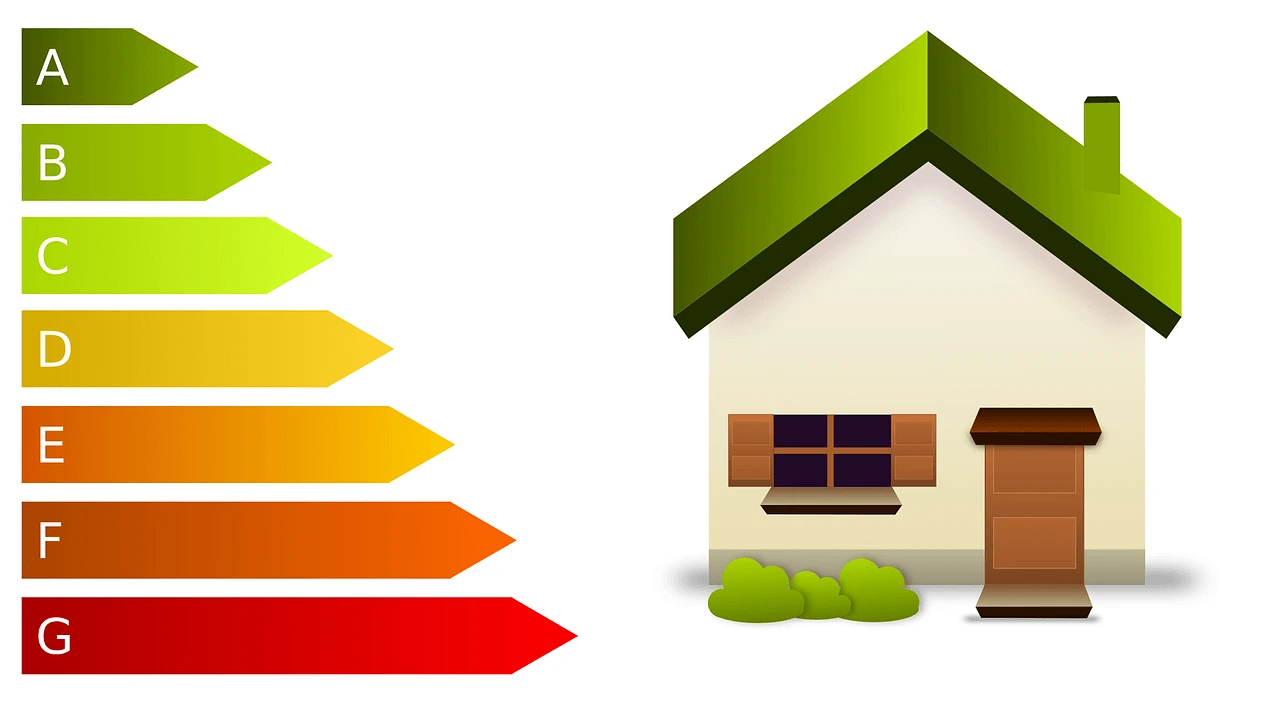
Thirdly, Solar Panels to Reduce Energy Costs!
Furthermore, the addition of solar panels on your roof will reduce your energy costs!
SOLAR PV GUIDE
Contact Buildings and Trust NowSOLAR PANEL INSTALLATION
Solar Panels Guide
Weight of solar (PV)?
Solar panels are large: nearly 2m by 1m, making them heavy. A typical panel could weigh as much as twenty kilograms each.
If your property dates after 2000, your roof will generally be strong enough to support the array of solar panels.
One of our surveyors will visit your property and determine if your roof can support the solar panel installation or not. Moreover, the surveyor will check that the structural integrity of your roof is in a suitable condition to handle the extra weight of the new solar panel installation. In some cases, solar panels need further support.
(PV) – Does the type of roof affect installation time?
Yes. It is easier to install solar panel systems on a flat roof than on a pitch. Furthermore, the steepness of a roof pitch can complicate the installation process.
Moreover, many different types of pitched roofs can affect the solar panel installation times:
- Gable
- Hipped
- Mansard
- Gambrel
In addition to roof styles, the type of roof surface can further complicate matters. Installing solar panels on a pantile roof will be easier than on slate. In conclusion, many factors can determine the time it takes installers to fit a solar panel system.
Will there be loose solar panel wiring in the loft?
The solar panel installer will fix all the wiring to the roof structure, such as the trusses or rafters.
How will I know the difference between solar (PV) cabling and tv cabling in the loft?
The installer will attach a sticker to the solar panel cabling. The sticker identifies the cable as a DC cable.
Is the solar panel system clearly labeled?
Yes, all the parts of a solar panel system will have a sticker that identifies the part.
Solar (PV) installation and roof repair?
Of course. Solar panel installation and roof repair are great options. You will only have to pay for the scaffolding once, whereas, if you had both jobs done at different times, you would need to pay for two sets of scaffold! Getting both jobs done at the same time will save you money.
Before solar panel installation, check your roof for any damage so a roofer or the solar panel installer can fix the damage before the solar panel installation.
How long after installation do the solar panels become live?
The solar panels will become live from the moment they receive daylight.
SOLAR PV GUIDE
Contact Buildings and Trust NowSOLAR PANEL INSTALLATION
Information solar PV installers need?
The more information you can give your solar panel installer, the quicker the installation process from start to finish will be.
Do not worry about what information is needed since we will get some of the information we need when you fill in our contact form. You will find further information if you visit Google Earth.
Solar Panels Guide
The number of solar panels needed?
Firstly, the more solar panels you have on your roof, the more electrical energy you will create. Of course, there are restrictions, such as the size of your roof and your solar panel budget.
How Solar PV works
Solar panels are excellent in converting solar energy to electrical energy. In other words, solar panels on a roof transform solar energy and light into electricity for use inside the home.
Firstly, solar panels rest inside solar arrays. Secondly, solar panels have several smaller solar cells. These silicon solar cells are a sustainable material since silicon is one of the most abundant elements on our planet.
Solar cells have semi-electrical conductor properties, which produce electrical energy in the home. The semiconductors are both negative and positive, and these contrasting charges capture and repel the electrons that create the electrical circuit. Alternatively, solar panels provide the voltage. Finally, solar cells have a great life span since the flowing electrons do not produce wear-and-tear on the solar panels.
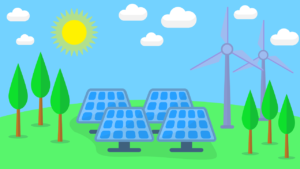
- Solar panels
- Inverter
- Battery.
As previously stated, a battery can add upwards of £5000 to the price of the solar panel installation. However, you do not necessarily need a battery addition, and the solar panel system will work fine without one.
There are different components to a solar panel:
- Glass
- Anti-reflective coating, which lets sunlight in but stops the sunlight from escaping
- Metal grid for structural support
- Silicone conductors to produce electrical energy
- Metal panel for stability.
Is there a difference between solar PV and solar thermal panels?
One final point to know is that there are solar photovoltaic panels and solar thermal panels.
The difference between solar PV and solar-thermal is that solar PV generates electricity; a solar thermal panel creates heat.
 Benefits of solar panel technology
Benefits of solar panel technology


